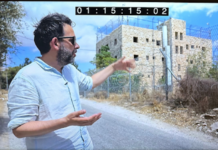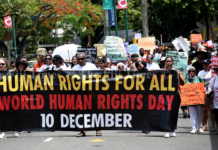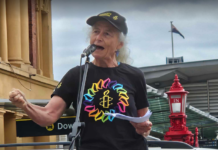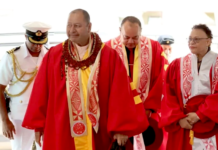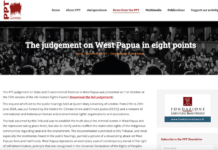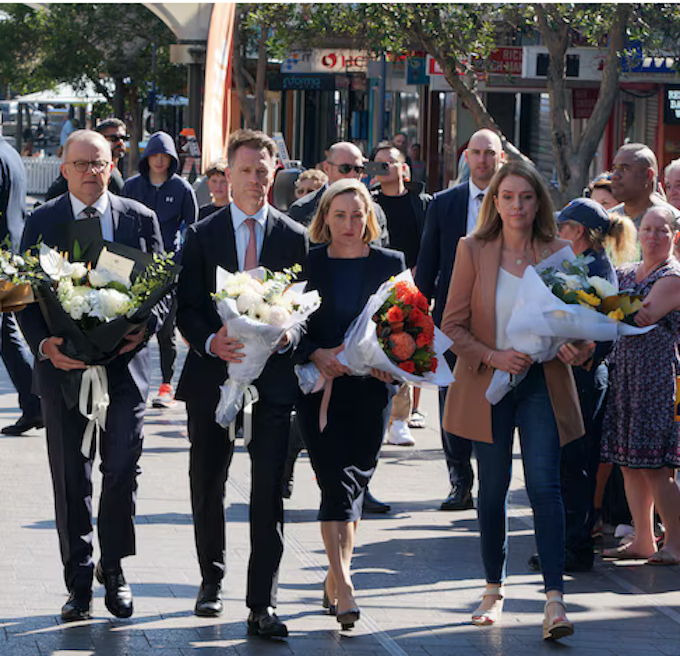
Australians are being urged to stay united following the horrific events in Sydney last week, reports the ABC’s Saturday Extra programme.
Five women and one man were killed in a mass stabbing at Bondi Junction last Saturday by a man with a history of mental illness, and a nine-month-old baby baby was among the eight people wounded.
The attacker was shot by a police officer and died at the scene.
- READ MORE: NSW Premier flags permanent memorial for victims of Bondi Junction attack
- The weapon everyone has access to: Sydney’s horror week of stabbings puts spotlight on knife crime
- Representations of Islam and Muslims in New Zealand media – Khairiah A Rahman
Two days later at a church in Wakeley, a suburb in Western Sydney, controversial Assyrian Orthodox preacher Bishop Mar Mari Emmanuel suffered lacerations to his head when he was attacked during a sermon that was being live-streamed. Nobody was killed.
Three other unrelated knife attacks took place in Sydney this week. Only the Wakely church attack was officially described as a “terror” attack although there had been widespread media speculation.
Those attacks coupled with anger and division caused by the war on Gaza as well as the polarising impact of the Voice referendum last year and Australians are seeing their sense of community and social cohesion challenged.
The ABC has spoken to a panel of analysts about the solutions to staying united and their comments were broadcast yesterday.
The panel included Khairiah A Rahman, an intercultural communications commentator from Auckland University of Technology who is also secretary of the Asia Pacific Media Network (APMN) and a member of Muslim Media Watch.
The programme highlighted New Zealand’s experience in March 2019 when an Australian gunman entered two mosques in Christchurch and killed 51 people while they were praying.
Asked what her message had been to the New Zealand government through the Royal Commission established to look into the mass killing, Rahman replied:
“Overall, social cohesion when we think about it has got to do with the responsibility of all people and groups at all levels of society. So we can’t actually leave it to the government or the leaders, the Muslim leaders.
“At the end of the day, the media also had a hand in all of this and my research had to do with media representation of Islam and Muslims prior to the attack. One of the things I found was unfair reporting, so pretty much what you have experienced in your media reporting of Bondi.
“The route that extremists take from hate to mass murder is a proven one, and you need to report fairly and stay calm in a society.”
Interviewees:
Dr Jamal Rifi, Lebanese Muslim Community leader, Sydney
Tim Southphommasane, Australia’s former race discrimination officer
Khairiah A Rahman, intercultural communications researcher, Auckland University of Technology
Producer: Linda LoPresti






